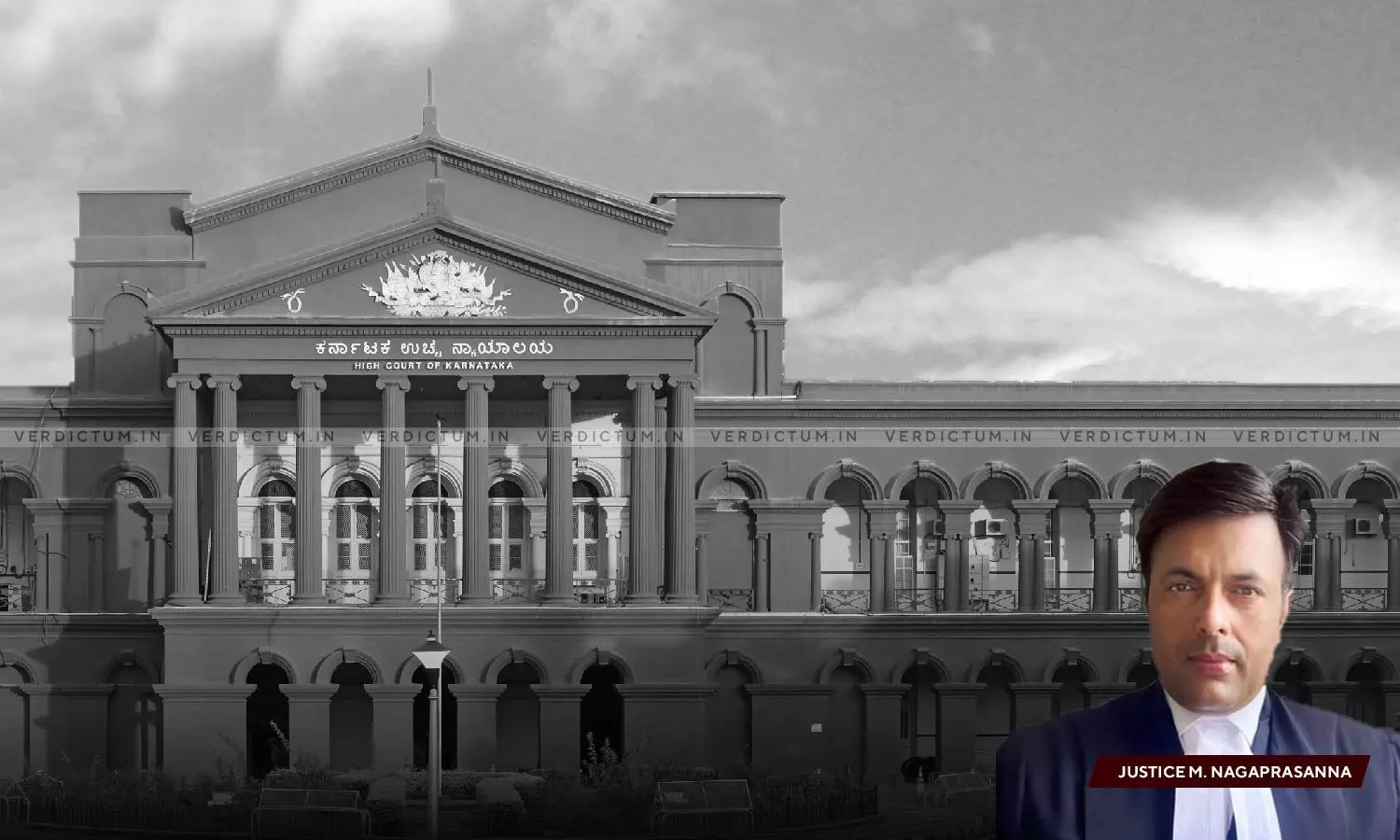
Merely Because Love Wanes Away By Efflux Of Time, It Won’t Mean That Consensual Acts Between Two Could Be Dubbed As Rape: Karnataka HC
 |
|The Karnataka High Court observed that merely because love wanes away by efflux of time, it would not mean that consensual acts between the two could be dubbed as rape.
The Court was dealing with a criminal petition filed by the accused against the proceedings pending before the Additional City Civil and Sessions Judge arising out of a crime under Sections 376 and 417 of the Indian Penal Code (IPC).
A Single Bench of Justice M. Nagaprasanna enunciated, “On a coalesce of the judgments rendered by the Apex Court what would unmistakably emerge is, all acts of consensual sex, between the complainant and the petitioner would not amount to rape. The duration of relationship between the two which was founded on love was for a period of six years, merely because love wanes away by efflux of time, either at the hands of the complainant or the accused, it would not mean that all consensual acts done between the two could be dubbed as rape.”
The Bench added that whether it is on pretext of marriage or otherwise, the acts between the accused and complainant were purely consensual and hence, the offence under Section 376 of the IPC is loosely laid against the accused, which cannot be permitted to be tried.
Advocate N. Tejas appeared for the petitioner while HCGP Harish Ganapathi and Advocate H. Sunil Kumar appeared for the respondents.
Factual Background -
The petitioner/accused who was a resident of the same area where the complainant resided, was running a mobile service and recharge centre. The complainant came in contact with him as she used to frequently visit his shop to get her pre-paid sim recharged. As per the prosecution case, both developed friendship which then led to physical relationship and all the escapades used to happen in the shop itself. A crime was thereafter registered on the ground that the petitioner started avoiding her calls and the complainant came to know that he got engaged with some other girl.
On registration of the complaint, the petitioner was arrested and interrogated, at which point in time, he said to have confessed that he indulged in physical relationship with her on the pretext of marriage. The Police filed a chargesheet against him for the offences under Sections 493 and 506 of the IPC and the proceedings were pending before the Sessions Court. Being aggrieved, the petitioner was before the High Court. The counsel for the petitioner contended that the complainant blackmailed the petitioner for extortion of money and also tried to commit suicide by consuming phenol.
The High Court in view of the facts and circumstances of the case noted, “The respective learned counsel have made several submissions with regard to the earlier complaint being registered where there was no indication of sexual relationship on the pretext of marriage. That do not call for consideration as what is being considered is the impugned complaint and its aftermath. … The other offences against the petitioner are the ones punishable under Sections 417, 493 and 506 of the IPC. Section 417 deals with cheating. There is no foundation laid for cheating other than what is alleged in the complaint that the sexual relationship with the complainant was on the pretext of marriage. Even otherwise the said act would not amount to cheating is by now well settled law by plethora of judgments rendered by the Apex Court and coordinate Benches of this Court.”
The Court further said that the reasons rendered to find that the offence under Section 376 is loosely laid, the offence under Section 417 would also become contrary to law and therefore, the offence under Section 417 also cannot be laid against the petitioner.
“Section 493 deals with cohabitation caused by a man deceitfully inducing a belief of lawful marriage. Every man who by deceit causes a woman to believe that she would be lawfully married to him and to cohabit on that belief would become open for punishment. This would also get subsumed in the reasons so rendered to hold the offence of rape being loosely laid, as there was no deceit in the case at hand. They were all consensual acts. Therefore, Section 493 of the IPC also cannot be laid against the petitioner”, it added.
The Court also noted that nowhere in the complaint or even in the summary of charge sheet there is any foundation laid with regard to criminal intimidation as is necessary under Section 503 of the IPC and bald allegations are made to invoke Section 506 of the IPC.
“Moreover, the petitioner himself alleged that he was beaten and assaulted by the complainant and her cohorts in relation to which the Police have already filed a charge sheet for offences punishable under Sections 323 and 355 of the IPC. Therefore, the offence under Section 506 of the IPC is also untenable to be permitted trial against the petitioner. Finding no offences being driven home by the prosecution, permitting further trial against the petitioner would become an abuse of the process of law and result in miscarriage of justice”, it concluded.
Accordingly, the High Court allowed the criminal petition and quashed the proceedings against the petitioner.
Cause Title- XXXX v. State of Karnataka & Anr.